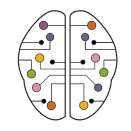LSD and nitrous oxid combination
I have a more specific question concerning N2O (mixed with other substances like LSD).Over the last couple of months it has become somewhat if a ritual for me to induce myself into an LSD trip once or twice a month, very often with the assistance of short nitrous oxide «flashes».Now I know the effects it creates: Next to light headedness, slight euphoria and halluzinogenic coloring, I get a strong visual and sonic «echoing». Visual in the case that it’s like you are only able to see one still picture, and after the effects of the N2O slowly wear off, more and more of your surrounding increasingly starts to move again, but in an «echoey» way.This lasts for around 1-2 minutes, as usual.The last time I did such a LSD-N2O session though, one of these echoing «flashes» lasted worryingly long… I’m guessing well over half an hour!Does anyone remember the movie Riddick, when the Lord Marshal had this ghosting effect on his body? Imagine that, but on everything that is moving in your viewing field, and at much stronger effect!During that time you begin to panic because the effect isn’t wearing off, until you settle down and consider that a) the LSD is prolonging the effect and it will slowly wear off with the drug, or b) you have caused yourself an irreversible amount of brain damage.Thankfully it did wear off and I’m feeling fine again, but obviously it made me reconsider this practise of mixing both drugs to that extent. We’re talking about 300-400ug LSD plus ten capsules of gas in a five hour time frame…I know that neither LSD nor N2O have been tested scientifically to an extent, or even combined, and that a high amount of nitrous oxide can cause brain damage and B12 deficiency.But I’m asking myself HOW dangerous this mix is, and if there have been reports of N2O effects lasting that long, and/or if the effects are «normal» and how dangerous they are…Sorry for writing down the whole story, but it genuinely scared me and I wanted you to have a detailed picture of the situation, maybe you can help me out with some insight!
LSD, is a powerful psychoactive substance known for its mind-altering effects. Effects can vary widely, and this variability is wider if it is combined with any other psychoactive substance.
LSD is generally considered to be non-neurotoxic, even at high and frequent doses.
Long-term exposure to high doses of nitrous oxide (N2O) can lead to neurotoxicity. N2O is a potent anesthetic and can cause a decline in vitamin B12 levels, which can lead to nerve damage. Chronic exposure to N2O can also lead to other adverse effects, such as memory impairment, balance problems, and cognitive decline. However, occasional or low-dose exposure to N2O is not considered to be neurotoxic
However, it is important to be cautious when combining LSD and other substances, including N2O. While the combination of these substances may not have serious neurobiological effects, it can still trigger panic attacks or unpleasant experiences for some individuals, depending on the doses used and personal characteristics.

Thanks
Thanks for feedback
Please provide me an example on what you consider "dubious"
I share your level of appreciation for the work you've produced. The sketch you've displayed is elegant, and the content…
Somebody essentially help to make significantly articles I'd state. This is the first time I frequented your web page and…